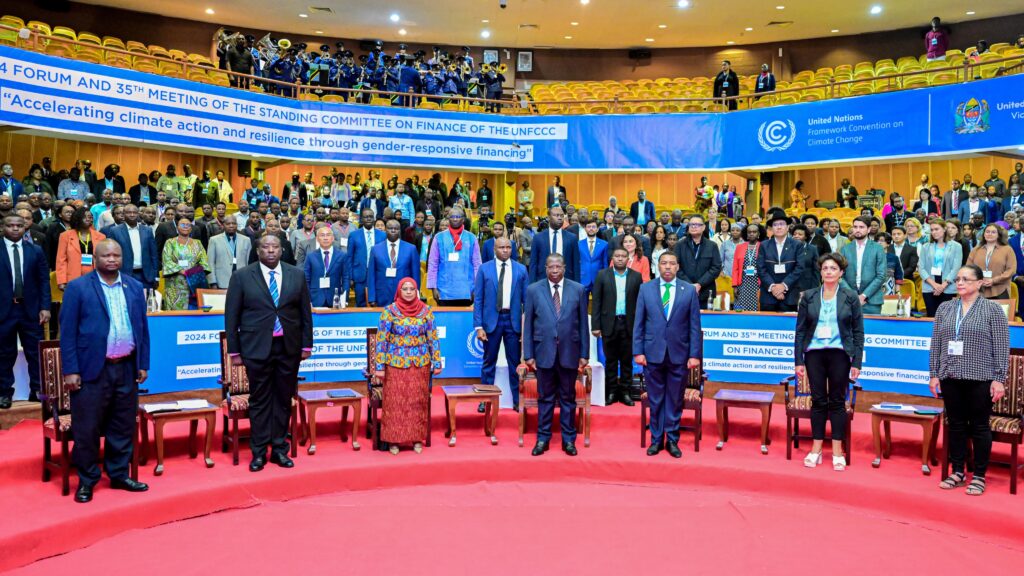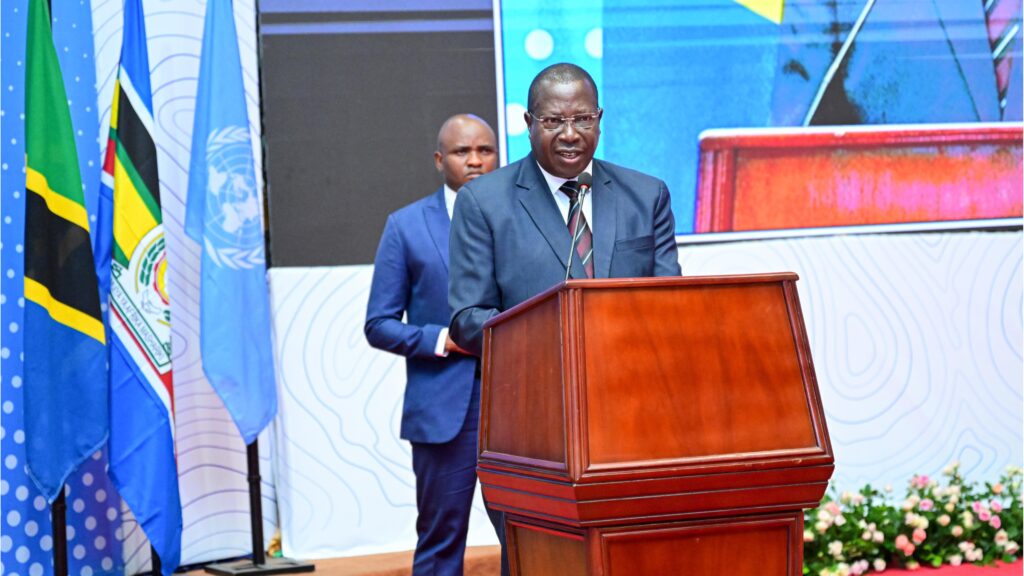Dar es Salaam. The Vice President of Tanzania, Dr Philip Mpango, has emphasized the need for equitable and gender-sensitive reforms, calling for clean cooking solutions to be prioritized in development initiatives.
He reiterated the Tanzanian government’s commitment to increasing the use of clean cooking energy to 80 percent of the population by 2034.
This initiative aims to curb deforestation, a significant contributor to environmental degradation, as outlined in the National Strategy for the Use of Clean Cooking Energy 2024–2034, launched earlier this year.
Dr Mpango highlighted that indoor pollution, primarily caused by the use of firewood and charcoal, is a major factor in both environmental destruction and serious health issues. He made these remarks while inaugurating the 24th Forum and 35th Meeting of the Standing Committee on Finance of the United Nations Framework Convention on Climate Change (UNFCCC) in Arusha, where Tanzania was the host.
He stressed that adopting clean cooking technologies will significantly reduce the burden on women, who currently rely on charcoal and firewood for cooking. These traditional energy sources not only harm the environment but also pose significant health risks.
“Tanzania has emerged as a leader in Africa’s clean cooking energy agenda, thanks to President Dr. Samia Suluhu Hassan’s strong advocacy for this critical priority,” said the Vice President. “In partnership with our development allies, we raised $2.2 billion (Sh5.94 trillion) during the Clean Cooking Energy Summit held in Paris in May 2024. This promising progress will support efforts to tackle the environmental, health, social, and economic challenges tied to the use of traditional energy sources for cooking,” Dr Mpango added.

The government’s goal is to ensure that by 2034, 80 percent of Tanzanians will be using clean cooking energy, up from the current 7 percent. Dr Mpango emphasized the need for gender-sensitive changes, urging that clean cooking solutions be a top priority in development initiatives.
The Vice President also addressed the significant impacts of climate change on Tanzania. In December 2023, heavy rainfall led to devastating floods in Hanang District, Manyara Region, which claimed 89 lives, injured 139 people, and affected more than 1,500 others, with 95 homes being swept away.
He revealed that the infrastructure damage from the floods was extensive, prompting the government to allocate nearly $3 million (Sh8.1 billion) for rebuilding efforts. The floods damaged 520 kilometers of national roads, requiring approximately $355 million (Sh958.5 billion) for repairs and reconstruction.
Dr Mpango explained that gender equality is being integrated into economic and financial policies to ensure both women and men have access to opportunities. Efforts are also being made to create an environment where women can fully participate in leadership and decision-making at all levels.
“Climate change and gender inequality present intertwined challenges, but Tanzania has made significant strides in promoting gender inclusion within climate policies and strategies,” he noted.

Climate change has profoundly affected ecosystems, food security, and health systems, with wide-reaching social impacts, particularly on vulnerable groups such as women, youth, and children. Dr Mpango pointed to floods, droughts, the spread of invasive species, rising sea levels, and landslides as some of the most visible consequences of climate change in Tanzania.
Speaking at the event, the Minister of State in the Vice President’s Office, Union and Environment, Dr Ashati Kijaji, warned of the risks posed by extreme weather, rising temperatures, unpredictable rainfall, tropical storms, and floods. These climate events have disrupted Tanzania’s economy and damaged ecosystems, leading to the loss of crucial infrastructure, including roads, bridges, and power grids.
“Tropical storms, like Hidaya, have already severely damaged housing infrastructure and electricity supplies, particularly in Kilosa and Mvomero districts in Morogoro and Zanzibar. This underscores the urgent need for bold climate action, including enhancing resilience and cutting carbon emissions,” Dr. Kijaji said.
Meanwhile, Finance Minister Mwigulu Nchemba emphasized the broader implications of climate change, noting that both domestic and international shocks related to climate change must be addressed to build a more resilient economy.
As Tanzania moves forward with its clean energy initiatives, the government’s multi-faceted approach aims to balance environmental sustainability, health improvements, and gender equity, while ensuring the country is prepared for future climate challenges.


